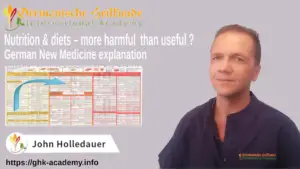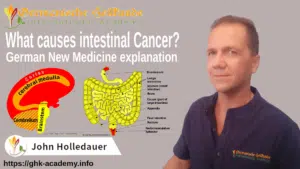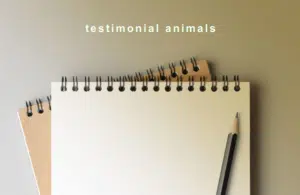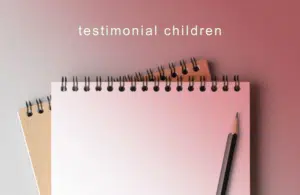
Crohn’s disease is a morsel conflict in the small intestine in hanging healing; a track chronically triggers the SBS.
Even after years of Crohn’s disease, you can get healthy overnight if you resolve the conflict or avoid the track.
This video will show you how easy it can be if you understand Germanische Heilkunde.
In Crohn’s disease, the small intestine is in what is called hanging healing of an indigestible anger conflict, with the aspect of starvation. Indigestible means either a morsel is stuck and can’t be digested, or a morsel is suddenly gone and thus can’t be absorbed.
In the case of the small intestine, it’s about a morsel that is suddenly gone, and this is upsetting because you now have less, due to the missing morsel, thus it’s also about a kind of starvation.
This is not necessarily about a real morsel of food (as it would be with the liver with its starvation conflict) but it could also be about a toy that has been taken away from you. So, the aspect of starvation can also be about a morsel you cannot eat.
Two special programs start simultaneously and synchronously with the conflict.
One concerning the mucosa of the small intestine and one concerning the smooth muscles of the small intestine. And this applies equally to the entire intestine. In both special programs, the biological sense is always in the active phase.
Both special programs have the purpose of dissolving this indigestible morsel and work together hand in hand.
The small intestine locally, around the morsel, increases its peristalsis to loosen the stuck morsel. The rest of the intestines lies at rest, which is constipation. The intestinal mucosa increases its surface area to absorb the last of the disappearing morsel.
If the conflict is solved, this thickened intestinal mucosa degrades, and one has intestinal mucosa shreds in the stool. Peristalsis calms down locally, but the rest of the length of the intestine now has colic, which is also diarrhea.
The crisis is a short repetition of the active phase. Thus, you again have constipation during the crisis for a short time. As with most special programs, the healing phase is more noticeable in the small intestine than during the conflict-active phase.
If you develop a hanging healing, then you will have diarrhea permanently, and this symptom is then Crohn’s disease. So the cause of Crohn’s disease is indigestible anger with the aspect of starvation in a broader sense, recurrent via a track that points precisely to that conflict.
A woman in her mid-forties, who had Crohn’s disease for seven years, listened to an introductory lecture on Germanische Heilkunde. She realized her now-obsolete indigestible anger with the aspect of starvation, and she recovered from the disease.
Years later, she told me her story.
She sold her house, because she was getting married. But her husband’s ex-wife still had to be paid alimony, and so the proceeds from the sale of her house was used to pay the ex-wife of her new husband. They both had to turn over every cent, to finance the ex-wife.
Every month she brought the money to the bank, for the ex-wife. When she saw the ex-wife standing there in the bank branch in high heels and a mink coat, she suffered her indigestible anger conflict, with the aspect of starvation.
When watching the introductory lecture, she realized her conflict, and that this ex-wife had been paid off by now, and she never had to send money to her again.
With the realization of the meanwhile irrelevant cause, the conflict and at the same time the track, which was “ex-wife in bank branch,” dissolved with her.
Even if she would meet the ex again in the branch, she now has an entirely different position towards this woman. Because today it is all yesterday’s news and without relevance.
This woman, who had become healthy, later became a GHK study group leader. I preferred people as study group leaders, who can report from their own experience.
Have fun with your further studies.
Stick to Dr. Hummer’s formulation, even if you do not immediately understand what one has to imagine under an, “indigestible anger with the aspect of starvation.”
Keep your eyes open, and you will find the most diverse variants in the people, and animals, in your own environment.
Because only then, you get a feeling of how one can imagine such a conflict. Only then can you ask the appropriate questions. You must learn to ask your questions precisely, because only then will your counterpart tell his conflict immediately, astonished, because he remembers it.
Thus he brings up this suppressed pain from his subconscious, and considers it with his present consciousness. This alone can already solve many things for the other person.
But knowledge also means responsibility, never forgetting. The therapist must know precisely what he is doing! Not every conflict may be solved!
Goodbye, until the next video








| Cookie | Duration | Description |
|---|---|---|
| cookielawinfo-checkbox-analytics | 11 months | This cookie is set by GDPR Cookie Consent plugin. The cookie is used to store the user consent for the cookies in the category "Analytics". |
| cookielawinfo-checkbox-functional | 11 months | The cookie is set by GDPR cookie consent to record the user consent for the cookies in the category "Functional". |
| cookielawinfo-checkbox-necessary | 11 months | This cookie is set by GDPR Cookie Consent plugin. The cookies is used to store the user consent for the cookies in the category "Necessary". |
| cookielawinfo-checkbox-others | 11 months | This cookie is set by GDPR Cookie Consent plugin. The cookie is used to store the user consent for the cookies in the category "Other. |
| cookielawinfo-checkbox-performance | 11 months | This cookie is set by GDPR Cookie Consent plugin. The cookie is used to store the user consent for the cookies in the category "Performance". |
| viewed_cookie_policy | 11 months | The cookie is set by the GDPR Cookie Consent plugin and is used to store whether or not user has consented to the use of cookies. It does not store any personal data. |
You’ll be informed by email when we post new articles and novelties. In every email there is a link to modify or cancel your subscription.